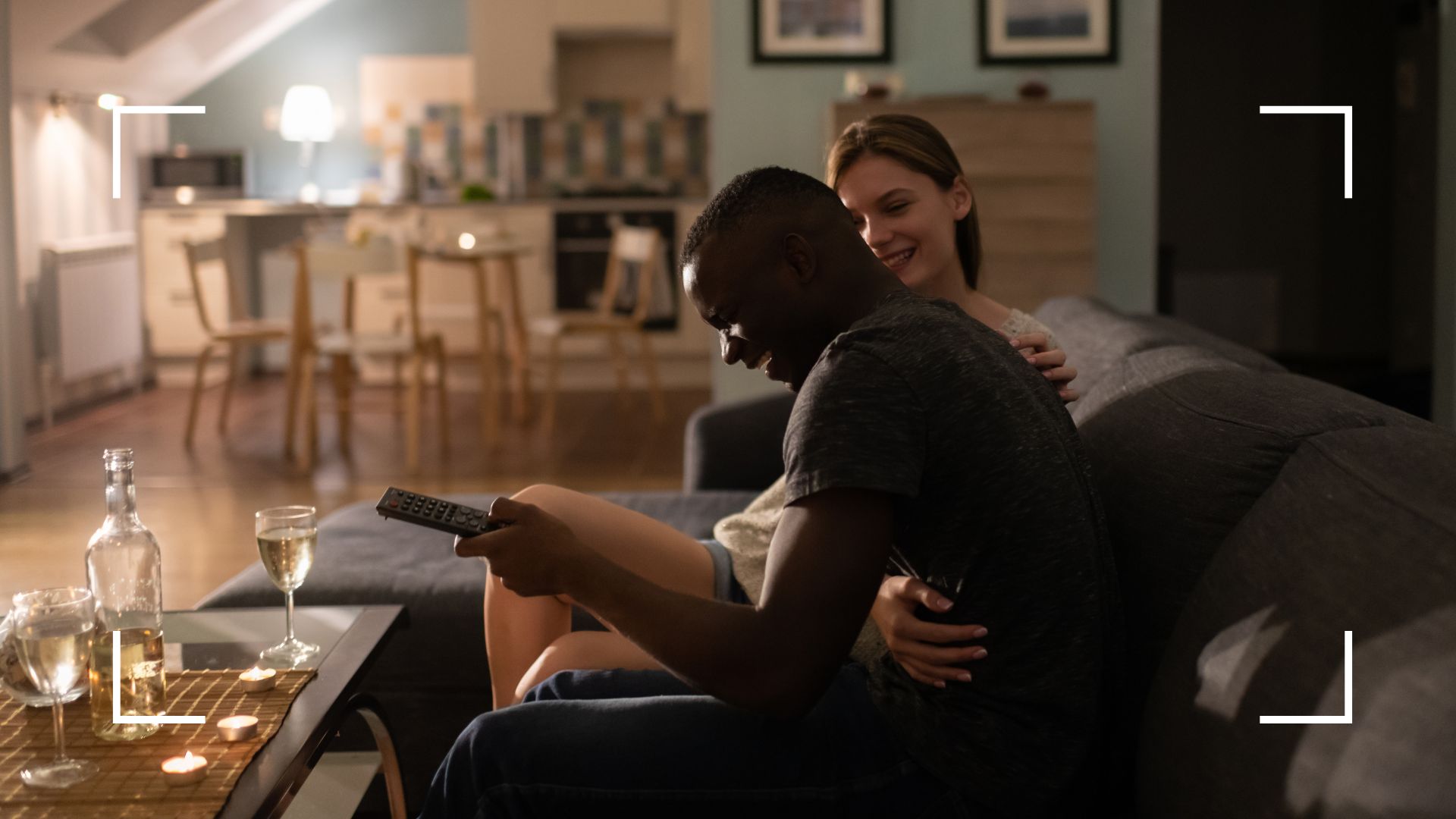Why a sex therapist wants you to know these 10 things
Free therapy alert!


Fixing intimacy issues in a relationship can be simpler than you think. Even if they’re long-term sex issues you’ve struggled with for years.
In fact, improving things in the bedroom can sometimes be as quick as investing in the best vibrator. And then telling your partner you’d like to try together. That's why professional advice is key. As what a sex therapist wants you to know can transform your sex life in seconds.
And it’s essential to get the balance “just right” when it comes to sex, because it can ensure an overall sense of wellbeing and happiness. Feel awkward and embarrassed? You are not alone. A survey by Boots found that a staggering 80% of Brits are not confident talking about sex – but it’s time to change that.
If you’re feeling overwhelmed by something about your sex life, it’s likely you have no one to confide in. That’s when you could benefit from the advice of an expert, such as a sex therapist. “As a society, we don’t know or learn how to talk openly about sex,” says psychosexual therapist Kate Moyle.
“But you need a space to have those conversations, away from the fear of intimate difficulties being taboo subjects.”
That’s why we asked Kate to share the most common problems discussed in her sessions, and the simple steps to help solve them. Here’s what our sex therapist wants you to know about fixing your sex life…
1. Every sex therapist wants you to know that not having sex for years is normal
Can’t recall the last time you made love to your partner? With busy lives and a pandemic to deal with, it’s more than likely your sex life has dwindled over the years – and that’s if it’s still active at all. But if this sounds like you, then rest assured you’re not alone. The average Brit has sex just once every 75 days, found a survey by Zaucey.com. Which is why our sex therapist wants you to know it's not weird at all.
Sign up for the woman&home newsletter
Sign up to our free daily email for the latest royal and entertainment news, interesting opinion, expert advice on styling and beauty trends, and no-nonsense guides to the health and wellness questions you want answered.
“Most couples have spells when they’re more quiet, but what becomes a problem is knowing how to reintroduce sex if it’s been a while,” says Kate. “Take intercourse off the table temporarily and reconnect with touch, kissing and being playful until you feel comfortable again. This will then give you the confidence to move back into that sexual space together.”
2. You need to stop thinking back to how your sex life was before
Body letting you down at the worst possible moment? Don’t feel as sexy as you did a decade ago? The human body is a bit like a phone battery. Sadly, it will slowly decline, however much you look after it. But this is natural. And constantly reminiscing about your lust-filled youth won’t help your sex life today.
“Too many people are preoccupied with trying to get back to how it was,” says Kate. “If you’re repeatedly experiencing sexual difficulties, seek medical advice. Too many people don’t and more anxiety can build, which can make the symptoms worse. You need to learn to take the pressure off and enjoy where you are now.”
3. Medicines can have a big impact on libido without you realising
Quickies no longer so quick? Don’t panic. General health or certain medications may be having a negative affect on your libido – and his, too. So speak to your GP and see if anything you are taking could be causing you to have issues in the bedroom. In fact, after the age of 50, the angle of a man’s erection may have reduced from 145 to 110 degrees. So adapt, rather than fight it.
“You may have more energy in the mornings now or find certain positions aren’t as comfortable. Just change what you need to,” says Kate. “Your body may take a little longer to respond than it used to, but focus on enjoying the sensual experiences instead. Pleasure, touch and enjoyable stimulation are the biggest assistants of desire and arousal. And this is what you want to be encouraging. Focus on touch, teasing and building anticipation.”
4. It’s OK to put your own sexual needs first
Be honest – are you only sexually active because you think it’s the so-called “right” thing to do? A recent survey by Boots found 17% of women are guilty of having “duty sex”. This is having sex because you think it’s “what’s expected” or “best for” the relationship. But putting your own needs first is key.
“If you’re having sex because you think you ‘should’, rather than because you ‘want’ to, then you’ll want sex less and enjoy it less,” says Kate. “Ask yourself if you’re just having sex for the benefit of your partner and consider the meaning it plays in your life.” Then try putting your own desires and orgasm first, and notice the difference.
5. Mindfulness is more than just a fad and could lead to better sex
A buzzword in recent years, mindfulness could help you get closer to your partner. And especially if you feel you’re just going through the motions. “We all lead busy lives, so it’s easy for sex to slip to the bottom of our priority lists,” says Kate. “It takes active effort to invest in intimacy.”
Mindful sex is the practice of switching off to turn on and can help you to focus on your pleasure. When you feel your mind drifting during sex or masturbation, try to bring your awareness back to the moment. Focus on your breathing and the way your body responds to being touched.
6. Lubricant is essential and can make a big difference
Sex shouldn’t be painful but, if it is for you, a tube of lube could be the quickest cure.
“Vaginal atrophy, which can commonly cause vaginal dryness in post-menopausal women, can make sex uncomfortable,” says Kate. “It’s caused by lower oestrogen levels. This can lead to friction and pain during intercourse, but lubricant is a simple and easy solution.”
7 A massage is a great starting point for better sex
Feel too awkward to tell your partner what you’d like to change when it comes to sex? Want to try a fantasy or have sex outdoors? “We all have our individual needs, wants, desires and likes. But, if we can't communicate them, then there will always be a block between us and our partners,” says Kate.
“Suggest a massage where you show each other different types of touch you would like on different body parts. Offer positive feedback and guide them by putting your hand on top of theirs. Plus, always start any conversation on a good note and you’ll be less likely to come up against a defensive response.”
8. We’ve all had different sexual pasts, so we might view sex differently
“The best sex advice any expert can give is about how to communicate better,” says Kate. But even in the strongest of relationships, the difference in how you give and receive love, and how your partner does, can cause problems.
“Couples often struggle because their primary love languages are different,” says Kate. “Both take the free Five Love Languages quiz online at 5lovelanguages.com. The languages of love are split into receiving gifts, acts of service, words of affirmation, quality time and physical touch. It can help you understand each other, so you can navigate your sex life differently and for the better.”
9. Sex toys can lead to better sex
They might seem scary if you’ve never used one before, but sex toys can add a sensual element to intimate experiences. And this is both on your own or with a partner. “Many people feel intimidated by the idea of introducing sex toys, but you can find something that works for you,” says Kate.
“Plus, some men and women report a loss of sensitivity as they get older, which can make orgasms harder to achieve. But adding in additional or different stimulation with something like a sex toy can be really helpful for this.”
10. See a sex therapist sooner rather than later
“Most people benefit from having a space to talk,” says Kate. “Many will have a specific problem or challenge, which they want to work through. However, it can also be beneficial for working through a general sense of dissatisfaction or that something’s not right or where it should be. The earlier issues are addressed, the easier they can feel to tackle.”
Faye M Smith is an award-winning journalist with over 20 years experience in the magazine industry. Her continued work in the area of natural health won her the coveted title of the Health Food Manufacturers’ Association (HFMA) Journalist of the Year Award 2021. Currently Group Health Director across several magazines including woman&home, Woman, and Woman’s Own, Faye specialises in writing about women’s health, especially menopause, relationships and mental health.
-
 Mike Tindall's firm response to royal title question is 'unsurprising', royal expert says
Mike Tindall's firm response to royal title question is 'unsurprising', royal expert saysHe gave a firm and definitive answer when he was asked if he would ever accept a royal title.
By Caitlin Elliott Published
-
 My husband and I rarely have sex anymore - here's why we're OK without it
My husband and I rarely have sex anymore - here's why we're OK without itSonia* and her husband say there’s more to their relationship than bedroom intimacy
By Helen Renshaw Published
-
 My husband and I rarely have sex anymore - here's why we're OK without it
My husband and I rarely have sex anymore - here's why we're OK without itSonia* and her husband say there’s more to their relationship than bedroom intimacy
By Helen Renshaw Published
-
 5 sexperts share their secrets to better sex for mature women
5 sexperts share their secrets to better sex for mature womenThese women know how to put the va-va-voom back into the bedroom… possibly even the kitchen! Here's what we've learned from them
By Kim Willis Published
-
 How to make wearing a face mask sexy in the bedroom
How to make wearing a face mask sexy in the bedroomSurely it's not possible?
By Faye M Smith Published
-
 Best sex on the sofa positions to try tonight
Best sex on the sofa positions to try tonightSex on the sofa is a great way to mix things up and the experts say it's a lot easier than you might think
By Faye M Smith Last updated
-
 Could these healthy foods be secretly ruining your libido?
Could these healthy foods be secretly ruining your libido?We're shocked!
By Faye M Smith Published
-
 The UK's biggest sexual fantasies have been revealed – and some might shock you!
The UK's biggest sexual fantasies have been revealed – and some might shock you!Did yours make the list?
By Faye M Smith Published
-
 7 expert-approved tips to make sure your relationship survives the lockdown
7 expert-approved tips to make sure your relationship survives the lockdownWill your love still be strong after the pandemic?
By Faye M Smith Published